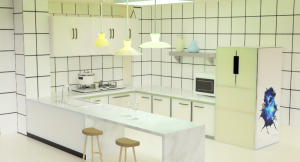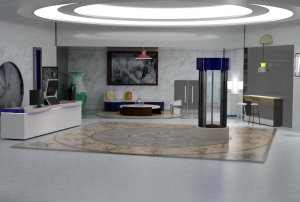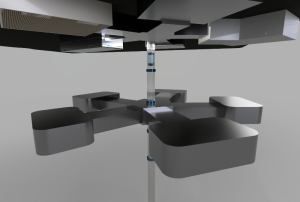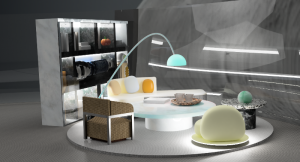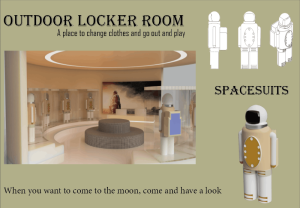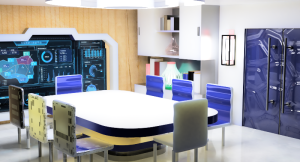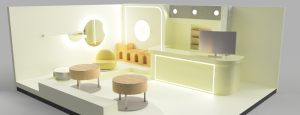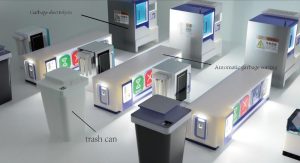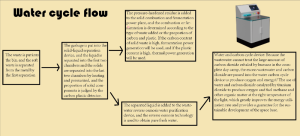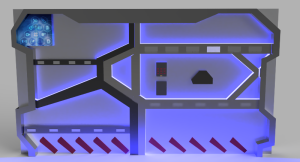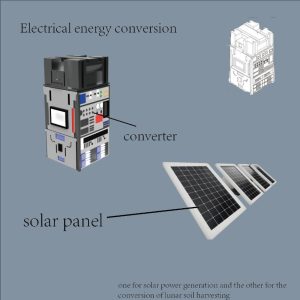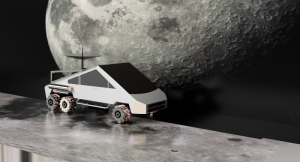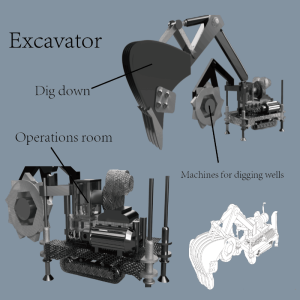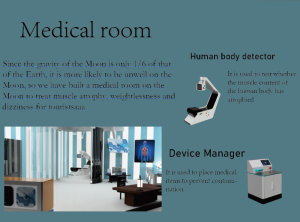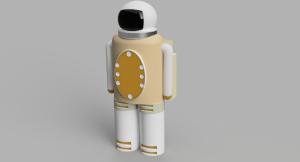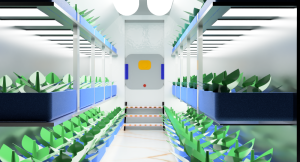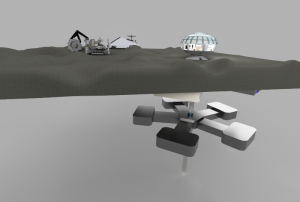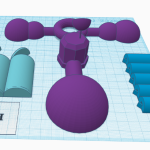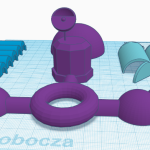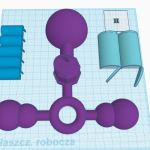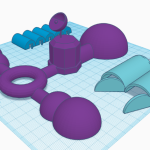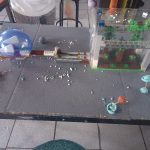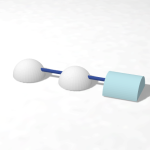travel by Happy Team
郑州轻工业附属中学 河南省郑州-河南 Kinija 19 years old, 18 years old 5 / 3 Anglų kalba Mėnulis
Projekto aprašymas
The Chinese people’s perseverance and exploration of the moon have a long history, from the ancient legend of Chang’e flying to the moon to modern multiple lunar missions, all reflecting this desire and courage to explore the unknown world. The idea of building a tourist camp on the moon is innovative, but to achieve this goal, many technological and survival issues need to be addressed.
Firstly, ensuring the safety of tourists is crucial. The lunar environment is vastly different from Earth, lacking an atmospheric layer for protection. Cosmic radiation and meteorite impacts are two major threats. Therefore, the tourist camp must have a sturdy protective shield to withstand meteorites and cosmic radiation. This protective shield should not only be sturdy enough but also able to convert the energy from meteorite impacts into additional energy for the camp.
Secondly, addressing water and food supply issues is fundamental for the survival of the camp. Extracting water from lunar soil is feasible, but this process requires a significant amount of energy and sophisticated technology. Besides extracting water ice, it can also be considered to utilize the hydrogen and oxygen elements in lunar soil to generate water through chemical reactions. For food, a greenhouse is an excellent way to achieve self-sufficiency, but it requires selecting suitable plant species and addressing the issue of insufficient nutrients in lunar soil. We plan to build a restaurant with a homely atmosphere, gathering delicious food from around the world, allowing tourists to enjoy various cuisines. An inevitable issue is how to ensure sleep quality on the moon. People’s energy levels can decline due to the low gravity environment for extended periods. We intend to increase the oxygen concentration in the bedrooms to ensure tourists’ sleep quality. Additionally, a medical room will be established on the moon to treat tourists’ muscle atrophy and dizziness due to the one-sixth gravity of the moon compared to Earth. An outdoor changing station will be provided with eight spacesuits for tourists to drive pioneer off-road vehicles or flyers to explore the lunar surface.
Furthermore, energy supply is also crucial. Solar energy is the most abundant energy source on the moon, which can be effectively collected through solar panels. Nuclear fusion is also an efficient and high-energy-density energy source, but it requires technological breakthroughs and ensures safety.
Moreover, machines for mining and drilling on the lunar surface are vital for collecting lunar soil, obtaining water, and oxygen. These machines need to have a high level of autonomy and intelligence to cope with the complex lunar terrain and environment.
Lastly, the design and construction of the tourist camp must adhere to the principle of sustainability. While developing tourism resources, it is essential to protect the lunar ecological environment and avoid causing irreversible damage to the moon.
Innovative Points: Garbage is deposited into garbage bins. The first step of the separation process separates soft waste from metals. The garbage is then fed into a solid-liquid separation device. Through the use of heating and pressurization, liquids are separated into the first two compartments, while solids are separated into the last two compartments. A carbon-plastic detector is utilized to determine the proportion of solid components. The hardened residue from the pressurization process is added to a solid combustion and fermentation power generation device. The decision to use combustion or fermentation is based on the type of garbage or the carbon-plastic ratio. If the solid waste has a high carbon content, fermentation power generation is adopted, while if the plastic content is high, fire power generation is used. The separated liquids are fed into a wastewater reverse osmosis water purification device, utilizing reverse osmosis technology to obtain pure freshwater. A water-carbon cycle device is also implemented. Since wastewater cannot be completely treated, and there is a significant amount of carbon dioxide exhaled by humans in the camp, the excess wastewater and carbon dioxide are fed into the water-carbon cycle device to produce oxygen and energy. Utilizing water and carbon dioxide, as well as titanium dioxide catalysis, oxygen and fuel methane and other organic substances are produced under appropriate lighting and temperature conditions. This significantly improves energy utilization efficiency, providing sustainable support for the development of the space base.
Projekto vaizdo įrašas
#
3D dizainas
Kiti projektai

